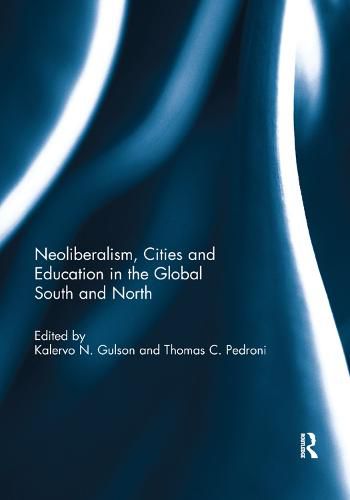Readings Newsletter
Become a Readings Member to make your shopping experience even easier.
Sign in or sign up for free!
You’re not far away from qualifying for FREE standard shipping within Australia
You’ve qualified for FREE standard shipping within Australia
The cart is loading…






Across the world, cities are being reshaped in myriad ways by neoliberal forms of globalization, a process of urban restructuring with significant implications for educational policy and practices. The chapters in this collection speak to two complementary but analytically distinguishable aspects of the interplay between education, globalization, cities, and neoliberalism. The first aspect relates to the macro relationships between these powerful global forces on the one hand, and cities and their schools on the other. In particular the book considers the stratifying dynamics that exacerbate already existing inequalities related to race, ethnicity, language, class, and gender-inequalities entailing differential access to the city’s various resources. The second aspect deals with the cultural politics, and logics, of these changes in the city. This recognises that globalization is not simply imposed on the city, but rather becomes insinuated into its fabric through the actions and the agency of local actors and social movements. Against this backdrop, the chapters document how the educational politics of urban contexts in the United States, India, Canada, South Africa and Brazil should be understood as sites in which neoliberal forms of globalization are localised, reproduced, and potentially contested.
This book was originally published as a special issue of Discourse: Studies in the Cultural Politics of Education.
$9.00 standard shipping within Australia
FREE standard shipping within Australia for orders over $100.00
Express & International shipping calculated at checkout
Across the world, cities are being reshaped in myriad ways by neoliberal forms of globalization, a process of urban restructuring with significant implications for educational policy and practices. The chapters in this collection speak to two complementary but analytically distinguishable aspects of the interplay between education, globalization, cities, and neoliberalism. The first aspect relates to the macro relationships between these powerful global forces on the one hand, and cities and their schools on the other. In particular the book considers the stratifying dynamics that exacerbate already existing inequalities related to race, ethnicity, language, class, and gender-inequalities entailing differential access to the city’s various resources. The second aspect deals with the cultural politics, and logics, of these changes in the city. This recognises that globalization is not simply imposed on the city, but rather becomes insinuated into its fabric through the actions and the agency of local actors and social movements. Against this backdrop, the chapters document how the educational politics of urban contexts in the United States, India, Canada, South Africa and Brazil should be understood as sites in which neoliberal forms of globalization are localised, reproduced, and potentially contested.
This book was originally published as a special issue of Discourse: Studies in the Cultural Politics of Education.